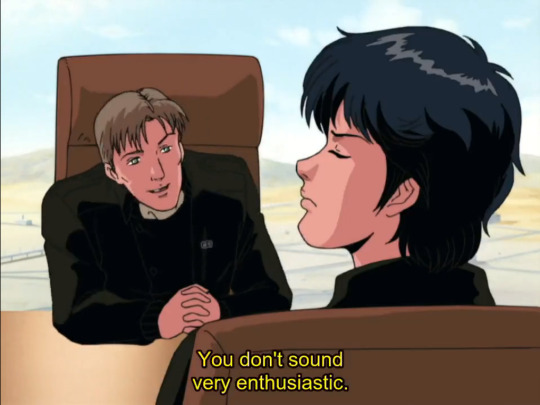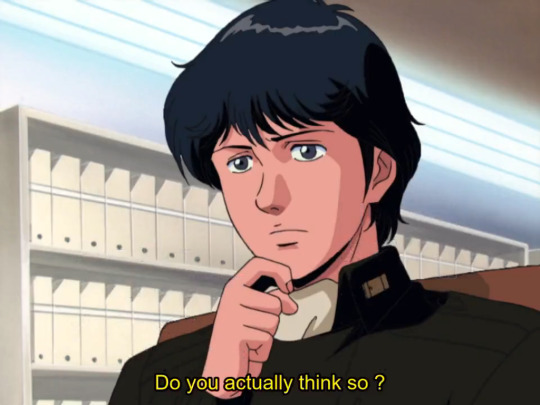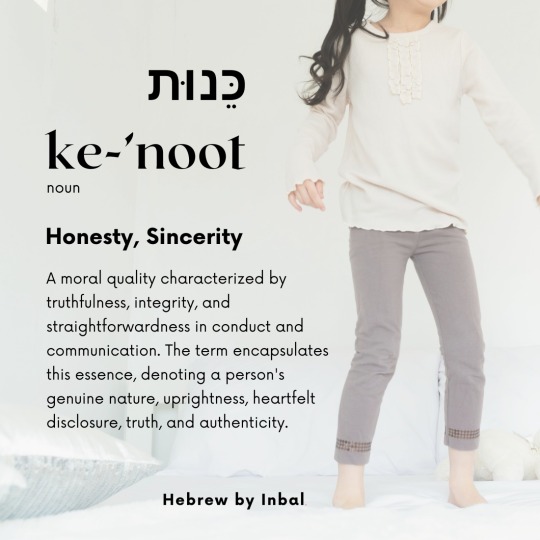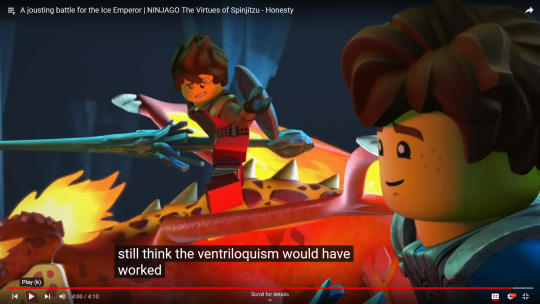#honesty is a virtue
Text

Some ppl have seen this pic but I thought I looked too stupid cute and I want attention
Only thing that’s missing is bite marks and bruises
#honesty is a virtue#ftm sub#queer nsft#bd/sm kink#k!ink#puppy sub#k!nks#yeah#ftm#mommy k!nk#nsft#nsft pics#lingirie#not the best lighting#nsft puppy#ftm nsft
15 notes
·
View notes
Text
my first set of 2023 is going to be changbin
everyone act shocked pls
#gotta start off the year true to myself#honesty is a virtue#my honesty is that i am a simp#i am dwaekki's official lawyer and security guard for free#im technically paid in 'yohs' which is emotionally fulfilling but not fulfilling to my wallet#but it's ok bc it's what he deserves#i match him in court dress in pink like legally blonde we are pink buddies#no one can stop us#except attorney woo but she's our bestie#anyway done being delulu
1 note
·
View note
Text
Something about how in chapter 4 of trc Adam is insecure about the fray on his second hand sweater, and how it's a symbol of his background and insecurities, and how most people don't notice it, and if they did, they didnt think better of him for it
And how Blue saw it immediately and it was something she liked about him, a girl too good at seeing the vulnerabilities of other people, but Adam didnt want someone to see his insecurities, didn't want someone to acknowledge that life
But Gansey did. Gansey needed someone to see him at his worst and love him for it, and blue did that
And how Adam needed someone to see him at his most unruly, and encouraged that
And Ronan makes Adam loud
#i love these ships sm. adam and blue were never going to work out because they needed different things out of a relationship#blue needed honesty. she needed someone who wouldnt try and hide from her or keep her seperate from their life#and adam didn't want someone who was always going to see what he tried to hide and would remind him of it#by virtue of coming from a similar place#gansey is always so strong for everyone and so repressed he didnt think he was ALLOWED to have bad days#and when he was vulnerable with blue instead of pushing him away she liked him more for it#while ronan looked at adam and *saw* him and then did not remind him of it#quite help in the background; treating him thr same as anyone else; showing him its okay to be wild and his life isnt defined#by the line between the poverty of love and money of his youth and his ambitions for the future#have i made a lick of sense#im tired and doint my second reread of the year#when will this series free me#shay posts#trc#trc brainrot#gansey my blorbo#the raven cycle#the raven boys#the dream thieves#blue lily lily blue#the raven king#gansey#bluesey#blue sargent#adam parrish#ronan lynch#pynch#richard gansey#richard campbell gansey iii
356 notes
·
View notes
Text
oh ok so Javert gained the ability to lie by understanding that human justice is not the same as nature or divine justice
it took him some effort to lie but he can now
I love Hugo's consistent understanding that to lie is not an inherently evil or sinful act and that sometimes the kind and good thing is to lie (like, lying to cops to protect a fugitive who you believe should not be in prison for example)
This is so interesting. Javert, to become a better person, needed to learn to become less honest
#I LOVE how Hugo flips virtue on its head#sometimes devotion bad! sometimes virginity bad! (this is I think the case for gilliatt but this is another book)#and sometimes honesty bad!!!#no virtue is absolute goodness is contextual the dead are right and the living are not wrong etc etc what a man
69 notes
·
View notes
Text

Hey, Zane. Hey, buddy. Did someone give you the scroll again?
44 notes
·
View notes
Text






#honesty is virtue#logh#legend of the galactic heroes#gaiden 1999#ginga eiyuu densetsu#yang wenli#cazellnu
51 notes
·
View notes
Text

When we talk about honesty, we're often thinking about telling the truth and not lying. But honesty runs much deeper than that.
It's about integrity, it's about being genuine, and it's about being transparent in our intentions as well as our actions. It's a commitment to the truth, even when the truth is uncomfortable to face.
In Hebrew, the word for honesty is כֵּנוּת /ke-'noot/, and it beautifully encapsulates what it means to be sincere and straightforward.
It signifies not just the act of being truthful, but also the quality of being upright, earnest, and absolutely transparent in your dealings with others.
Sincerity, on the other hand, is like the soulmate of honesty. It's the emotional truth that complements factual truth. Sincerity is all about being the same person on the inside as you project on the outside. No masks, no facades, just raw, unfiltered you. It's about saying what you mean and meaning what you say. It's about being genuine in your words and actions, never misleading or taking advantage of others.
Both honesty and sincerity hold immense power. In a world where misinformation can spread like wildfire, these virtues are more crucial than ever.
Just like words have the power to destroy, they also have the power to build.
And words spoken with honesty and sincerity? Well, those can not only build worlds but also mend broken spirits, foster long-lasting relationships, and instigate meaningful change.
These virtues are cornerstones for communication, especially in the challenges we face today.
Misinformation, prejudice, and hate often stem from a lack of these two vital qualities.
So when you practice honesty and sincerity, you're not just making a personal choice; you're making a social commitment.
And remember, it's not just the loud voices of hate that shape the world—it's also your honest, sincere words if you choose to speak them.
In our journey together through language and life, I'm committed to practicing these virtues in every lesson, conversation, and interaction we share. And I hope you'll join me in doing the same.
#honesty#sincerity#hebrew#jewish#learnhebrew#hebrewbyinbal#language#israel#hebrew langblr#jew#torah#trending#virtues#language learning#hebrew language#stand with israel#sincere#languages#polyglot#langblr#jews#jewish tumblr#jumblr#jew tag
22 notes
·
View notes
Quote
You should live in such a way that there is nothing which you could not as easily tell your enemy as keep to yourself.
Seneca, Moral Letters to Lucilius
229 notes
·
View notes
Text
i dont think i agree with calling surgeons (and other people who have salaries in the hundreds of thousands a year) "working class" is ... quite right ...
#vero.txt#t#you guys can call them middle class if you want but in all honesty they are rich . it doesnt matter if they only make money from labor#instead of by virtue of just owning something. theyre still rich#and i also really hate the kind of posts that encourage poor people to be nice to those unfortunate makers of 100k+ salarymen#like 'be nice to them because theyre not as rich as jeff bezos!' no.#they dont treat me or those who are poorer than me like human beings. they are not in solidarity with me
4 notes
·
View notes
Text
This has always been the problem with the Howard Zinn school of history. Zinn’s history of the US resembles a biography written by a bitter former spouse. In lieu of a nuanced and accurate historical account it offers a deliberate slander of our own culture. The result is at once self-indulgent and self-pitying. A balanced account must not flinch from examining our historical mistakes and misdeeds and those of others, but the modern approach to history has too often become a neurotic wallowing in half-truths of our own failures. The corresponding utopian fantasies of other cultures more closely resemble the morality play of a Tolkien novel than the more complex experiences of people who actually lived on Earth.
As UK-based IEA economist Kristian Niemietz recently observed in a short Twitter thread about “anti-Britishness,” signalling disgust at our own culture and history has little to do with truth or helping marginalized communities. Rather, it is a way to advertise the superficial cleverness of radical self-criticism. By castigating the United States on social media or with our K12 or university students, we can flatter our moral egos without needing to donate money or time to communities in need. It fosters division and the main beneficiaries are not Native Americans or other marginalized groups, but whoever is collecting likes and followers online.
We can do better than this. US history should be clear and accurate about the US’s misdeeds, but we should also acknowledge that the US overcame its faults to become a beacon for progress. In the same way, we should highlight the wonderful culture, arts, religion, and so on of American Indians without turning them into pious exemplars of pastoral innocence and moral instruction. Our “ethnic studies” curricula too often lapse into propaganda designed to indict and shame the West and all its works. People and cultures are complex. If students were permitted to understand that human failings are universal but can be overcome, it might help to alleviate the depression and anxiety of those unjustly burdened by the sins of their ancestors.
__________
Christopher J. Ferguson
excerpt from his book review of ‘Indigenous Continent’ by Pekka Hämäläinen @quilette
https://quillette.com/2023/04/27/uncomfortable-history/
#history#analysis of facts vs narratives#quilette#oikophobia#white guilt#bullshit#education#intellectual honesty and proportionality vs sentimentality or pseduo guilt that helps fuckall#examine your assumptions#intellectual honesty vs fundamentalist ideological loyalty#localize your virtue to help people in need where you are vs ideological conformity
24 notes
·
View notes
Text
If ignorance and passion are the foes of popular morality, it must be confessed that moral indifference is the malady of the cultivated classes. The modern separation of enlightenment and virtue, of thought and conscience, of the intellectual aristocracy from the honest and common crowd is the greatest danger that can threaten liberty.
— Henri-Frédéric Amiel
#life quotes#lifequotes#light#quote#quote of the day#quoteoftheday#quotes#wisdom#Henri-Frédéric Amiel#morality#ignorance#passion#virtue#enlightenment#moral indifference#indifference#culture#cultivated class#separation#division#disconnection#disconnect#thought#conscience#intellect#intellectual aristocracy#honesty#common crowd#populace#danger
2 notes
·
View notes
Text
I know the honesty short was primarily for Jay but the fact that it included the Ice Emperor, who was the product of Zane having been lied to, deceived, and manipulated for decades, yknow, the LACK of honesty, is just really neat to me idk
#ninjago#zane julien#zane ninjago#ice emperor#ninjago ice emperor#I’ll stop blogging about him one day#it would’ve been cool if honesty had been explored as Zane’s virtue but generosity is a perfect fit for him#honestly it didn’t even occur to me why until just now#would be kind of sexy if they had included some kind of message about not being TOO generous to the point of self sacrifice#it seemed like the short was actually just reinforcing that idea by having Zane give up HIS ARM but whatever
100 notes
·
View notes
Text


sigh
#u better believe that as soon as i noticed the meditations presence & relevence my brain has NOT let go of it since. ive just avoided being#so annoying ab it. anyway. this section specifically's what i've been thinking about incessantly. this and also the paragraph that's like#'if you find something worth more than honesty & justice & virtue-- if you find something you're willing to throw your values away for--#hold onto it tightly because it must really be fucking worth something'#anyway as ive said... the presence of this book in the “notoriety and personal legend mean everything” show is so interesting 2 me.#using. my personal favorite translation gregory hays btw#ten year late black sails lb#ok GN.
1 note
·
View note
Photo

Whatever became of virtue? -- Michael Lipsey
26 notes
·
View notes
Text
thinking thoughts about brendan saying no one hates nate more than beard does. can’t wait to see this play out over the season
#obviously they’re all mad at nate….but w beard….whew.#he doesn’t hate people without them ‘deserving’ it.#he doesn’t hate without reason.#and he genuinely views honesty and loyalty and protection as his strongest virtues#hm.#(💗) earth is mobile ! / ooc.
4 notes
·
View notes
Text

I am very convinced that Jay actually practices ventriloquism.
24 notes
·
View notes